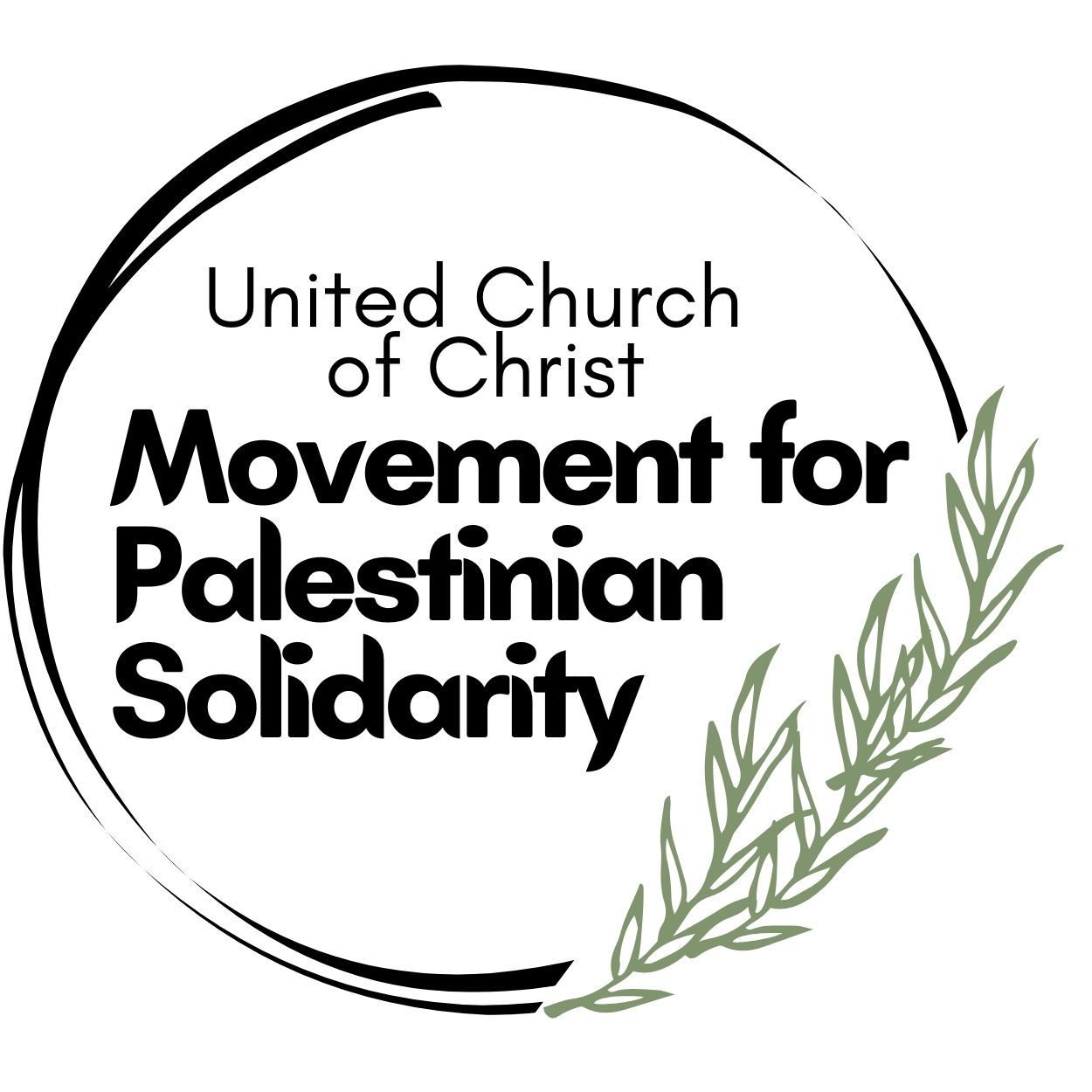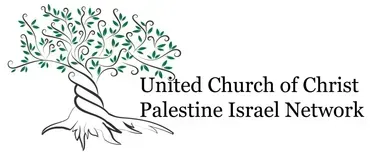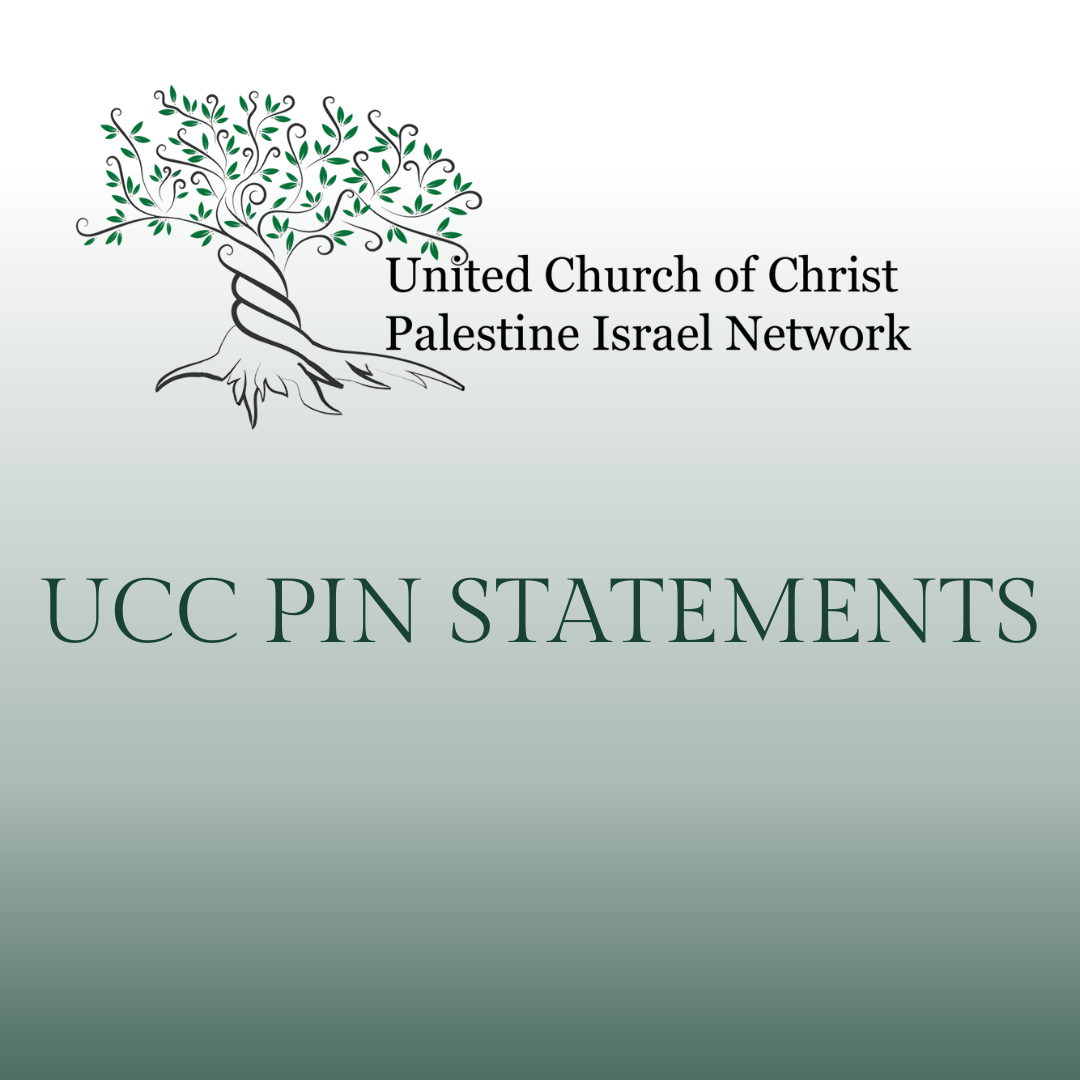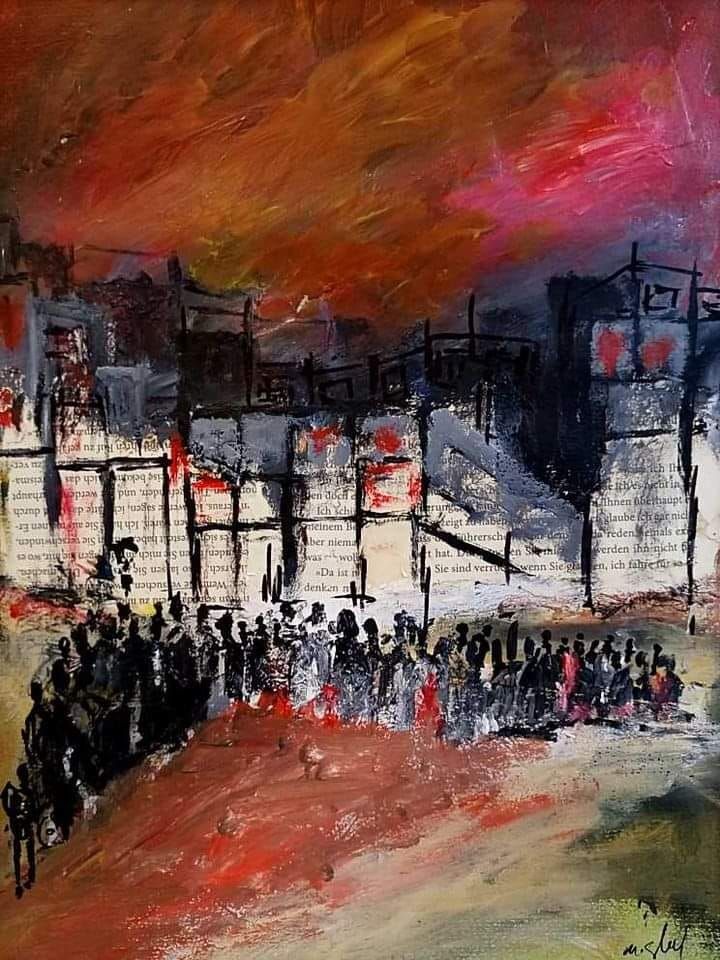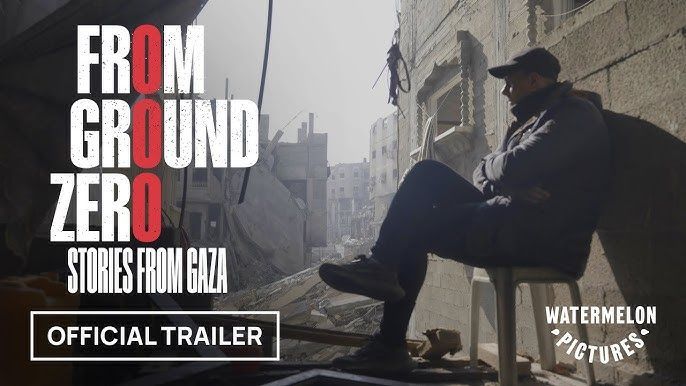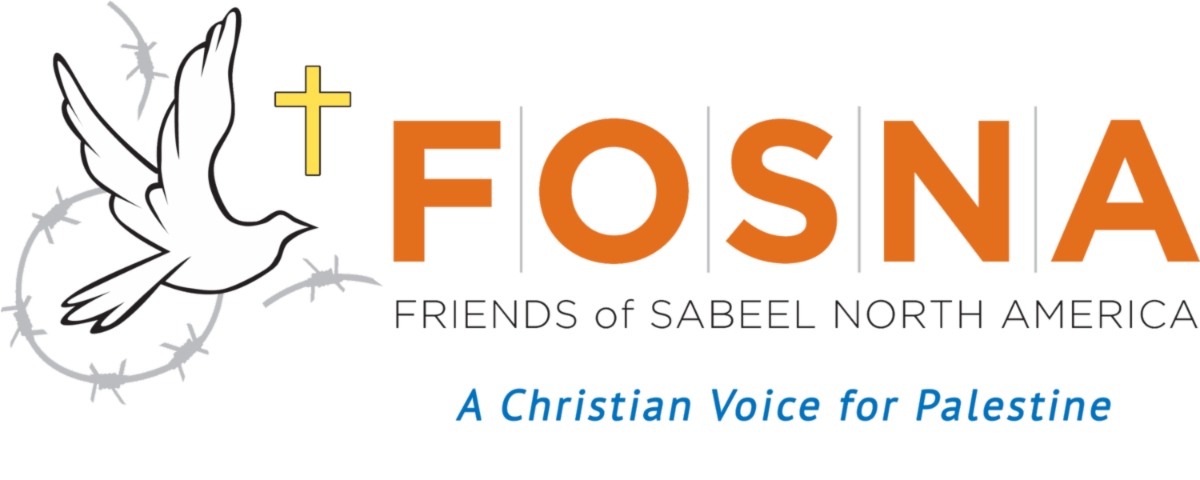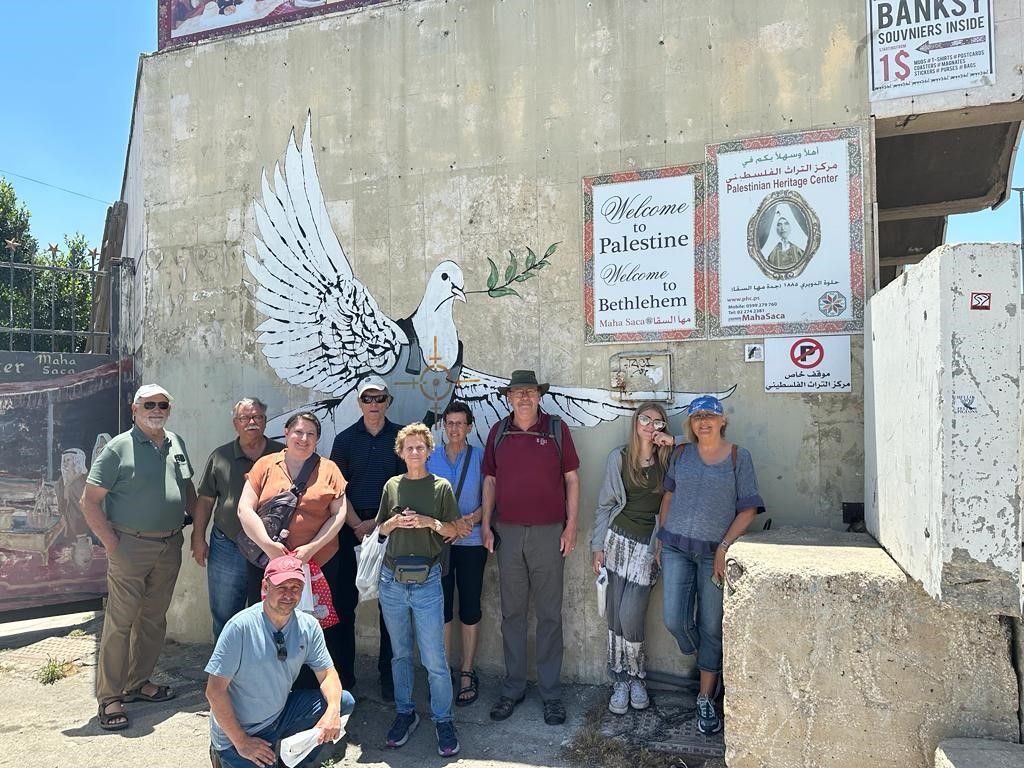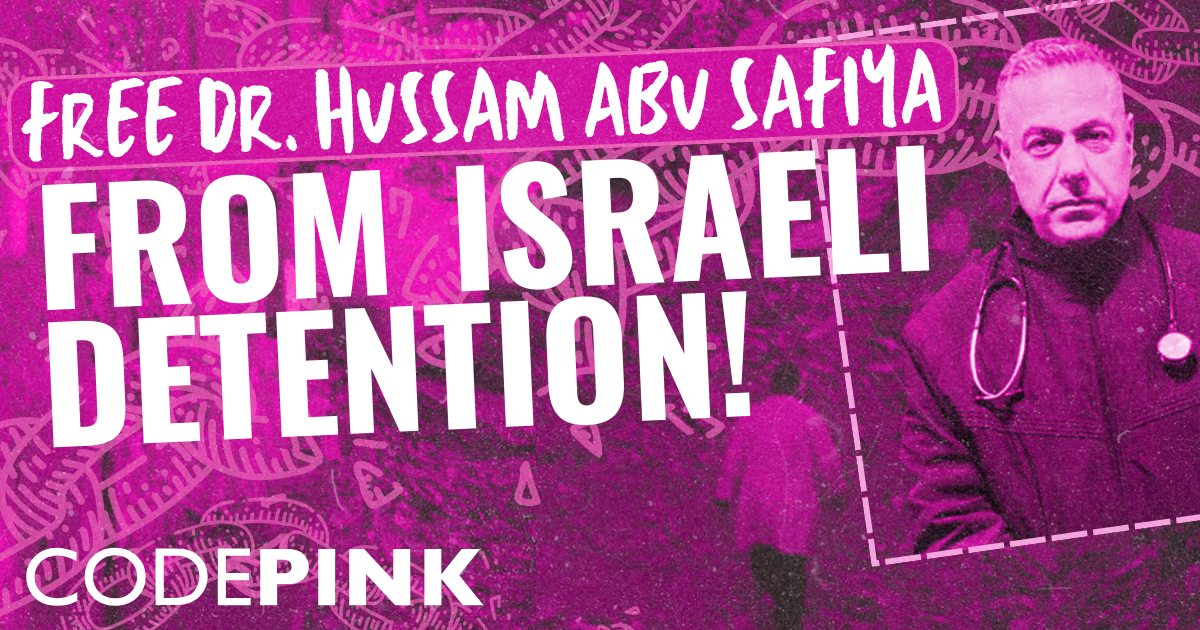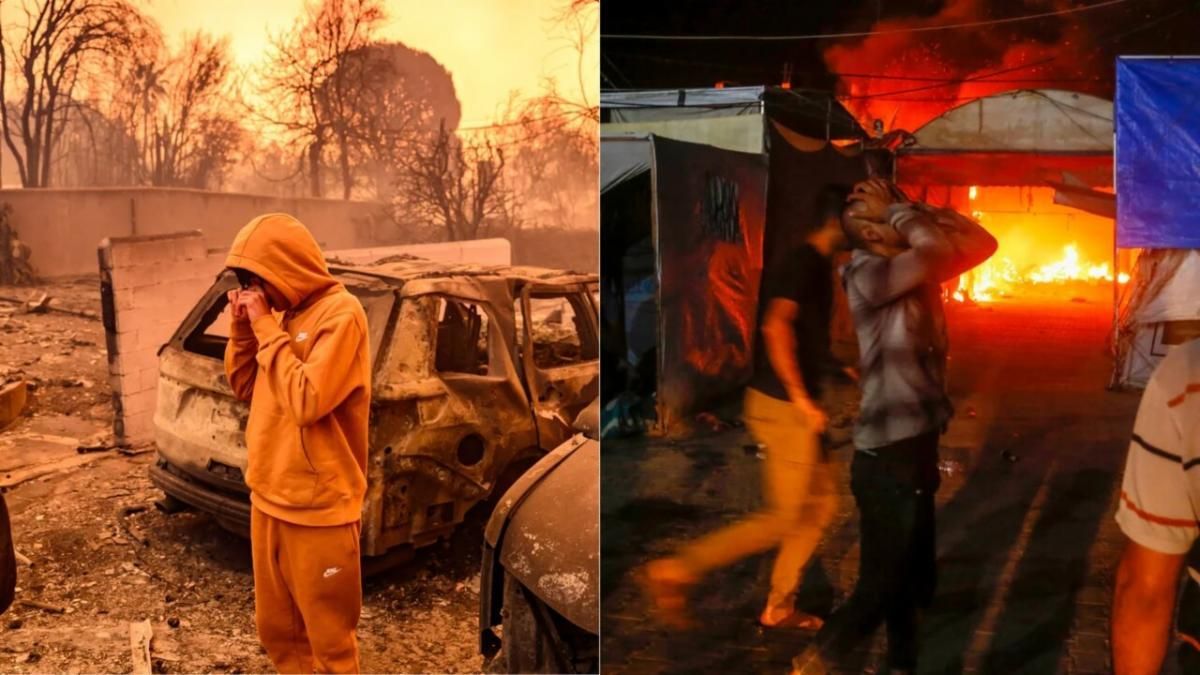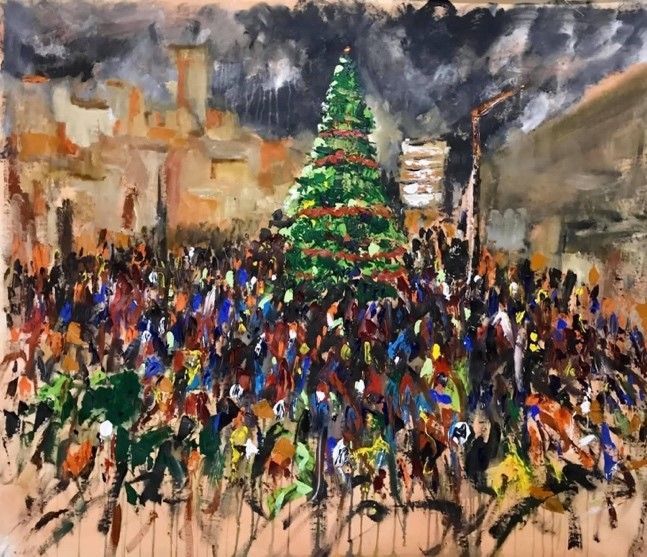Praying with their feet: Rabbis for Ceasefire Passover Action
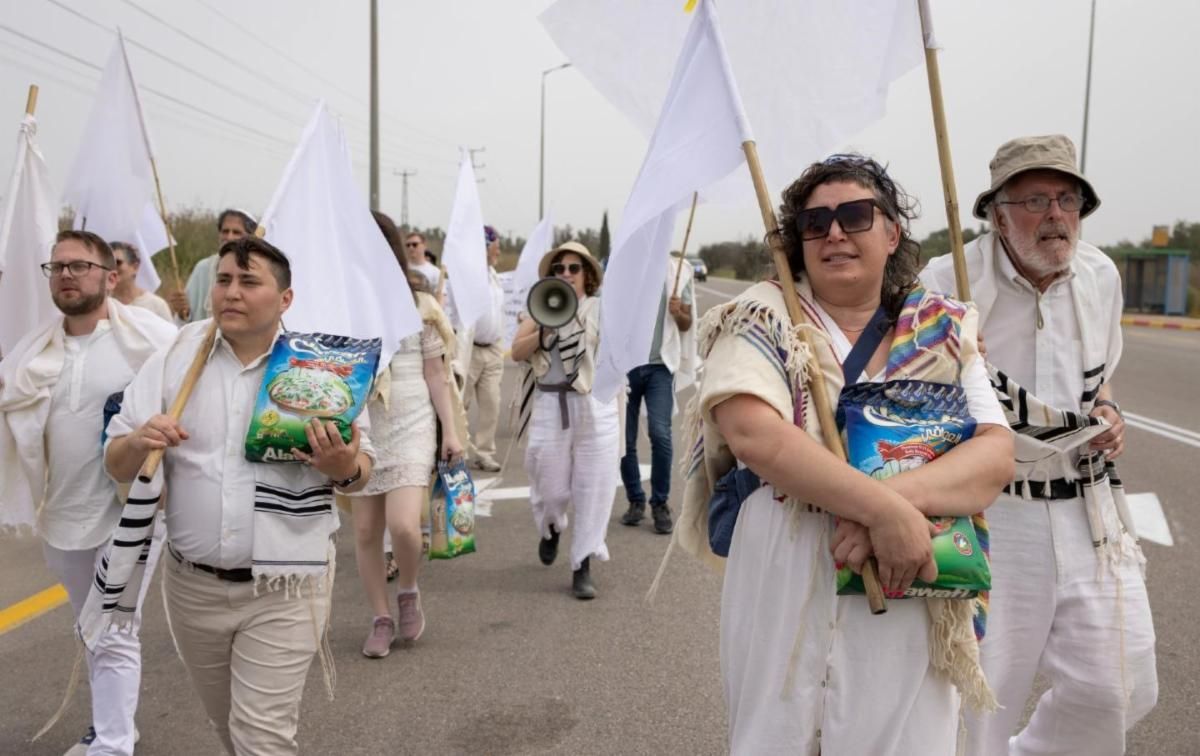
A delegation of rabbis (Rabbi Brian Walt on the right) from the United States and Israel march toward the Erez Crossing at the northern tip of the Gaza Strip on April 26, 2024.(Oren Ziv).
On Friday, April 26 during Passover, a group of eleven U.S.-based rabbis and three Israeli rabbis walked towards the Erez Crossing in their effort to take food into Gaza. In the phrase Rabbi Abraham Joshua Heschel coined during his participation in the 1965 Selma March, these rabbis were praying with their feet. They were enacting, literally embodying, the Passover commandment, writ large on one of their banners, “Let all who are hungry come and eat.” Explained Rabbi Brian Walt, “We were being called to pray with our feet and with our whole bodies.”
The decision to participate in the witness had been preceded for Brian by painful conversations about how to celebrate Passover this year. “How do we celebrate it with truthfulness, sincerity, and integrity?” he asked. “How does one say, ‘All who are hungry come and eat,’ when the Jewish state has launched a famine to wipe out Palestinians?”
When colleagues from Rabbis for Ceasefire, whose formation shortly after Oct. 7 Brian had been part of, proposed this direct action and invited Brian to join, he eagerly accepted the invitation. He had found his response to his query about celebrating Passover this year, “Go to Israel. Go unannounced. Connect with Israeli rabbis. Bring flour and rice. Get publicity, as a matter of spirit and conscience.” While the direct action would be largely symbolic, it was not only symbolic. The group had with them a truck filled with a half-ton of flour and rice.
Being with rabbinic colleagues of such courage was for Brian powerful and amazing. He described their action in this way: “We each took a bag of rice and walked down towards the Erez Crossing. Of course, we didn’t get there. Israeli police declared the area a ‘closed military zone,’ a tactic they and the IDF use all the time to prohibit demonstrations in support of the rights of Palestinians in the West Bank. They blocked our way and arrested some members of our group.”
But the Israeli police could not block the rabbis’ praying nor silence their remarks, like these by Rabbi Brant Rosen: “This Passover, let this be our only pledge: if we fail to give the Palestinian people a place at the table, we will not have fulfilled the requirements of Passover. If we understand the Exodus story as a story of Jewish liberation alone, or – God forbid – a story of Jewish liberation at the expense of others, we will not have fulfilled the requirements of Passover. If we celebrate this festival by hardening our hearts to the genocidal violence Israel is inflicting on Gaza, we will not have fulfilled the requirements of Passover.”
Nor could the Israeli police silence the rabbis’ singing of Ayeka, a powerful, spiritual song by Aly Halpert, about the story of Cain killing Abel. “The words,” Brian explained, “are those that God says to Cain. ‘Ayeka? Where are you? Your brother’s blood screams out to me from the earth. What have you done.’ These are the urgent, moral questions that Passover calls all human beings everywhere to address, especially now. Where are we? What are we doing? How are we going to be fully present?”
The action did get publicity, lots of it, including an article in the New York Times. It was a courageous and consequential action: religious leaders taking their faith, in what Brian experienced as “a sacred pilgrimage” to a place of horrifying suffering, crying out for justice and permanent ceasefire, and demanding that all who hunger be fed. Brian acknowledged that the action was risky. “It felt like putting my body on the line. . . Sometimes we do things; we offer our life for something greater.”
Now is a time of moral imperative. May the example of these rabbis from Rabbis for Ceasefire seed and inspire the imaginations of all people of faith, all people of conscience, to discern ways to engage in creative, nonviolent resistance, as we respond, for ourselves, to these same questions: Where are we? What are we doing? How are we going to be fully present in the face of genocidal violence?
